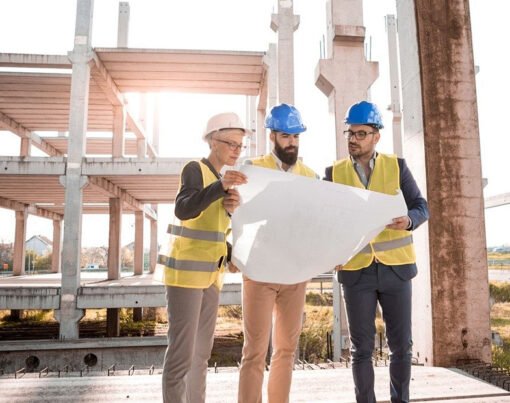Roofing stands as a fundamental element in the architecture of any structure, from the quaint suburban house to the towering skyscraper. It serves as the first line of defense against the whims of weather, shielding inhabitants and possessions from rain, snow, wind, and sun. Beyond its utilitarian function, roofing also contributes significantly to the aesthetic appeal of a building, defining its character and enhancing its overall visual impact. In light of these crucial roles, it becomes evident why the expertise of professional roofing companies such as Fort Wayne IN, is indispensable in both commercial and residential contexts.
Table of Contents
Understanding Commercial Roofing
Commercial roofing encompasses a broad spectrum of projects, ranging from office complexes to retail centers, industrial facilities, and beyond. The roofs of these commercial establishments vary in composition and design, reflecting the diverse needs and architectural styles of the built environment. Among the commonly employed roofing systems are built-up roofs (BUR), which consist of multiple layers of bitumen and reinforcing fabrics; single-ply membranes, such as EPDM, TPO, and PVC, known for their durability and ease of installation; and metal roofs, prized for their longevity and resistance to fire and extreme weather conditions.
Each type of commercial roof presents its own set of challenges, requiring specialized knowledge and skills for proper installation, maintenance, and repair. For instance, built-up roofs demand meticulous attention to detail during the layering process to ensure structural integrity and water-tightness. Single-ply membranes require expertise in heat welding and seam sealing techniques to prevent leaks and premature deterioration. Metal roofs necessitate precision in fastening and flashing to withstand thermal expansion and contraction cycles without compromising their protective function.
Moreover, commercial roofs often feature additional components such as HVAC units, skylights, vents, and drainage systems, further complicating the roofing process. Proper coordination and integration of these elements are essential to ensure seamless functionality and avoid potential conflicts that could compromise the overall performance of the roof system.
Exploring Residential Roofing
In contrast to commercial roofing, residential roofing focuses on homes and other residential structures, catering to the unique needs and preferences of homeowners. The roofs of residential properties come in a myriad of materials and styles, ranging from traditional asphalt shingles to modern metal panels, elegant clay tiles, rustic wood shakes, and eco-friendly options like green roofs and solar tiles.
Each type of residential roof offers its own set of benefits and considerations, influencing factors such as cost, durability, energy efficiency, and aesthetic appeal. Asphalt shingles, for example, remain the most popular choice among homeowners due to their affordability, versatility, and ease of installation. Metal roofing, on the other hand, appeals to eco-conscious consumers for its recyclability, energy efficiency, and longevity. Clay tiles exude timeless elegance and charm, while wood shakes evoke a rustic, natural aesthetic that complements traditional and contemporary architectural styles alike.
Despite their diversity, residential roofs share common vulnerabilities and maintenance requirements that necessitate professional attention. Issues such as leaks, damaged shingles, inadequate insulation, and poor ventilation can compromise the integrity of the roof system, leading to costly repairs and premature replacement if left unaddressed. By engaging residential roofing specialists, homeowners can benefit from comprehensive inspections, timely repairs, and proactive maintenance programs tailored to their specific needs and budgetary constraints.
Bridging the Gap: Why Both Matter
While commercial and residential roofing may appear distinct in scope and scale, there exists a significant overlap in terms of materials, techniques, and challenges. Both sectors require thorough assessments, regular maintenance, and timely repairs to prolong the lifespan of the roof and preserve the integrity of the underlying structure. Moreover, advancements in roofing technology and sustainability practices often benefit both commercial and residential projects, driving innovation and raising industry standards across the board.
Additionally, property owners with mixed-use developments or diverse portfolios stand to benefit from engaging companies that specialize in both commercial and residential roofing. By consolidating their roofing needs under a single provider, they can streamline communication, ensure consistency in quality and service standards, and leverage economies of scale to optimize costs and efficiency.
Key Factors to Consider When Engaging Roofing Companies
When selecting roofing companies for commercial or residential projects, several key factors should be taken into account to ensure a successful outcome. Firstly, reputation and experience serve as reliable indicators of a company’s reliability, integrity, and competence in the field. A track record of satisfied customers, positive reviews, and industry accolades can instill confidence in the company’s ability to deliver on its promises and exceed expectations.
Secondly, licensing and insurance play a crucial role in protecting property owners against potential liabilities and ensuring compliance with local building codes and regulations. A reputable roofing company should possess the necessary licenses and certifications to operate legally within its jurisdiction, as well as comprehensive insurance coverage to protect workers, clients, and properties against accidents, injuries, and property damage.
Lastly, reviewing the company’s portfolio and seeking references from past clients can provide valuable insights into the quality of their workmanship, attention to detail, and customer service standards. By evaluating completed projects similar in scope and complexity to their own, property owners can gauge the company’s capabilities, craftsmanship, and ability to deliver results that align with their expectations and vision.
Conclusion
In conclusion, the importance of engaging professional roofing companies for commercial and residential projects cannot be overstated. From skyscrapers to suburban homes, roofs serve as the first line of defense against the elements, protecting occupants and investments from harm.
By entrusting their roofing needs to experienced professionals, property owners can ensure the longevity, durability, and performance of their roof systems, while enhancing the aesthetic appeal and value of their properties. As such, whether it’s a high-rise office building or a cozy family home, investing in quality roofing services is a prudent decision that pays dividends in terms of comfort, safety, and peace of mind.










